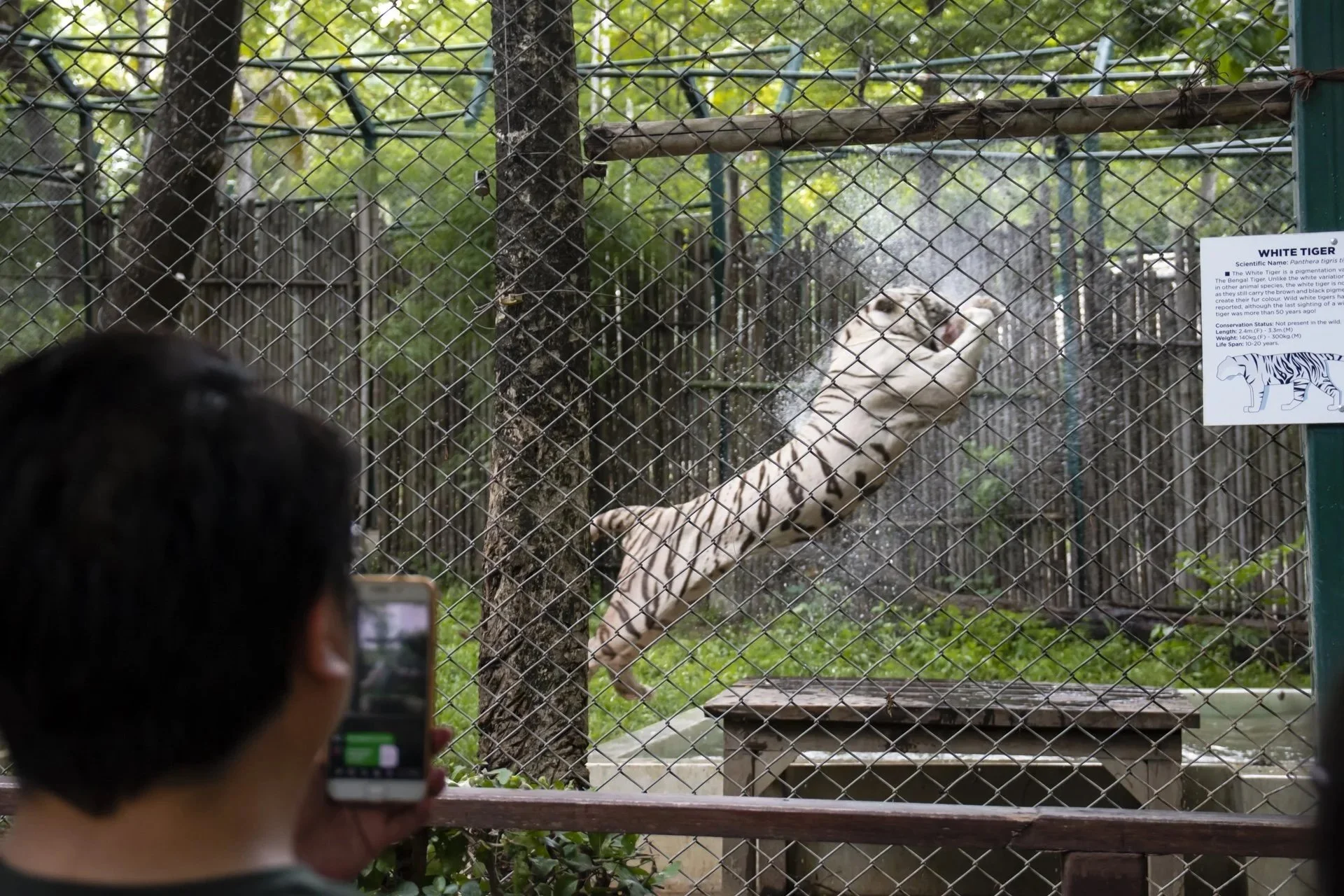Progress! Mexico becomes latest country to ban marine mammal performances
In a step forward to animal protection, lawmakers voted unanimously to ban marine mammal breeding, performances, and concrete tanks following years of advocacy.
A ban on dolphin shows and the use of marine mammals in entertainment in Mexico has been introduced.
The Senate and the Chamber of Deputies have unanimously approved legislation to prohibit the breeding of dolphins for shows, therapy, entertainment, research, and any other activity not related to conservation. It also bans the acquiring of new marine mammals, marine mammal performances, and the use of concrete tanks.
For decades, Mexican NGOs, scientists, and activists have pushed for reform to the marine mammal entertainment industry, while local groups have consistently protested outside entertainment venues that host dolphin, sea lion, and other marine animal shows.
“We celebrate this progressive policy recognizing animal sentience, lawmakers explicitly acknowledged the suffering and exploitation of marine mammals, and humanity’s duty to forge a new ethical relationship with other species. This goes beyond marine mammals — it sets a precedent for how we treat all animals.”
In February of this year, public outrage increased when video footage surfaced of a captive dolphin who died after an accident during a live show at the Riviera Maya Hotel in Barceló. While jumping out of the water during a performance in front of tourists, he landed on concrete and suffered fatal injuries.
Following this, and amid reports of the deaths of two other dolphins last year, Mexico’s Federal Attorney for Environmental Protection (PROFEPA) announced the closure of the hotels’ dolphinarium, operated by the same company that operates the Miami Seaquarium, according to People for the Ethical Treatment of Animals.
PROFEPA also committed to carrying out unannounced inspections of all 17 dolphin facilities in the area.
Figures show that Mexico has approximately 350 captive dolphins, in an estimated 50 facilities across the country. Now, as part of the new law, all dolphins currently kept in concrete tanks must be relocated to sea pens within 18 months.
“Today marks a historic moment,” said Mariel Tejeda, Director of Empty the Tanks Mexico. “After years of advocacy, legislation now protects marine mammals, thanks to a consensus among environmental authorities, civil society, academia, and even industry. This is a step forward in a global transition away from animal abuse.”
International condemnation against the use of marine mammals in entertainment continues to increase, as studies into the physical and psychological harm experienced by marine mammals in captivity have shown that they suffer from chronic stress, abnormal behaviors, and diseases due to confinement in artificial tanks.
Last month, public outrage over the captivity of marine mammals surged following the death of Kamea, the youngest orca at any of SeaWorld’s facilities. She died in captivity at SeaWorld San Antonio, United States at the age of 11 years old after contracting an undisclosed illness.
As part of the fight against captivity, Species Unite is urging congress to pass the SWIMS Act. You can add your name to the petition here.
We Have A Favor To Ask…
Species Unite amplifies well-researched solutions to some of the most abusive animal industries operating today.
At this crucial moment, with worldwide momentum for change building, it’s vital we share these animal-free solutions with the world - and we need your help.
We’re a nonprofit, and so to keep sharing these solutions, we’re relying on you - with your support, we can continue our essential work in growing a powerful community of animal advocates this year.




In most U.S. prisons, inmates cannot legally obtain plant-based food - even if they offer to pay for it themselves.